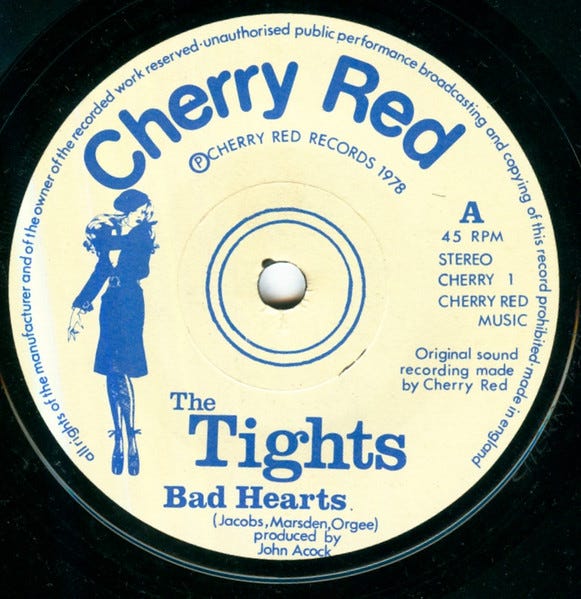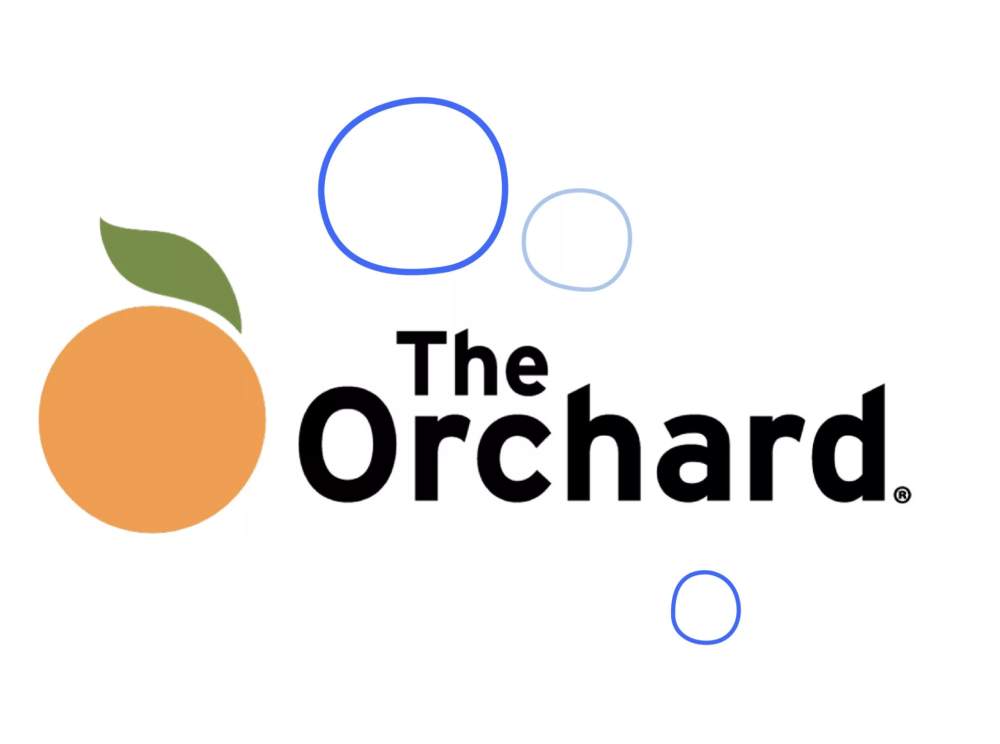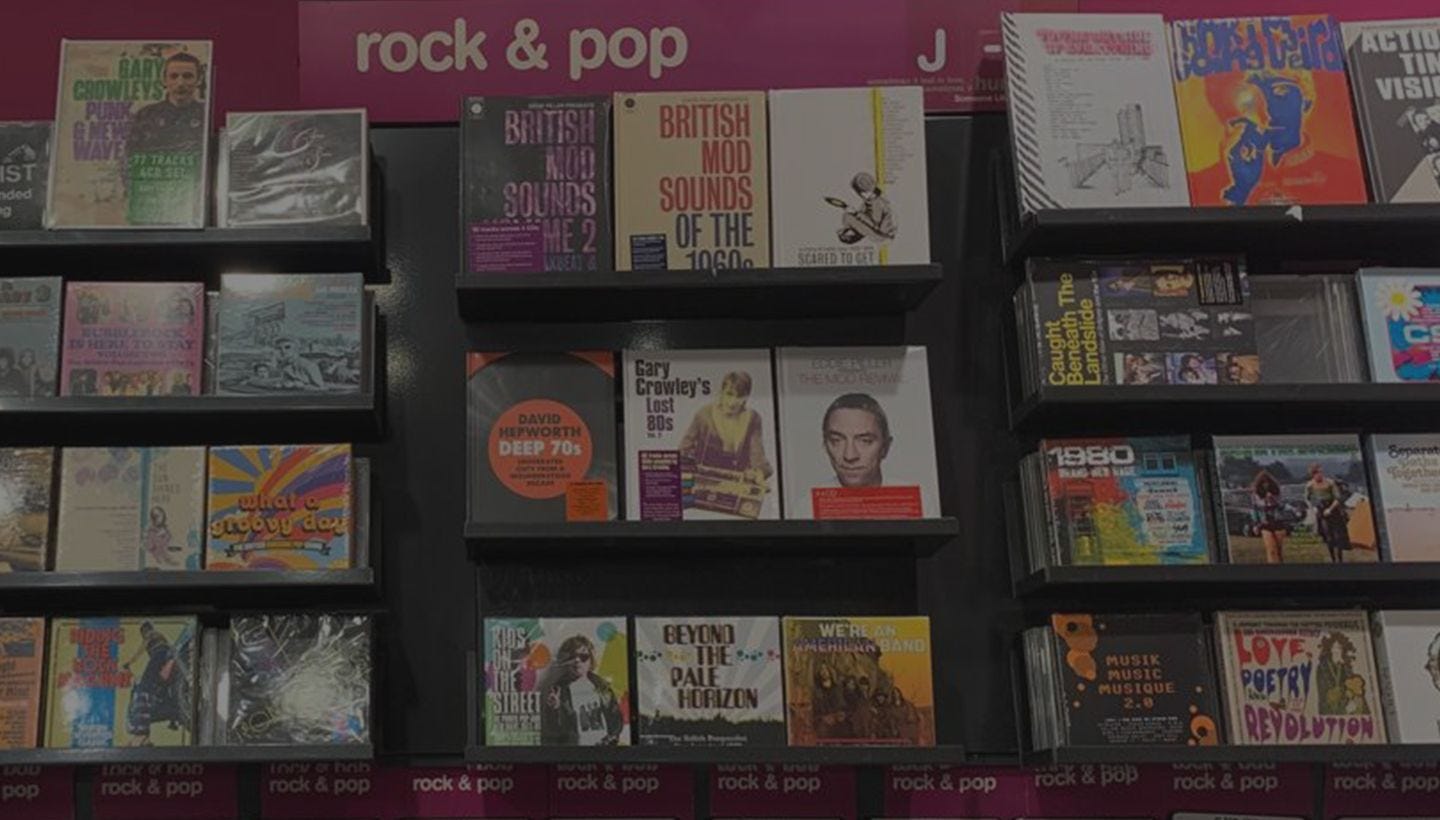Distributing Cherry Red …the first 45 Years
Making music available was not always as straight-forward as it is now. Way back in 1978 when Cherry Red started, life was very different. The internet didn’t exist and neither did digital files so if you wanted to release a single or album the manufacturing process involved three different suppliers. You needed to print labels at one company, the covers at another and the vinyl at a third. The labels were delivered to the vinyl manufacturer who stamped them onto the vinyl and then delivered them to your distributor. The covers arrived separately and then somebody (sometimes me) had to insert the vinyl into the covers. I remember well when I first saw the end result of this with CHERRY1, the first Tights single. It was a great feeling that the work I had initially put into the label has taken a practical form.
Cherry Red’s first distributor was Spartan Records who were based in Wembley. It was owned by two people, David Thomas, who I had known from my days at Magnet Records where I worked  as General Manager, and Tom McDonnell who had worked at Record Merchandisers; a fulfilment company who supplied the Woolworths chain, who at the time were one of the biggest retailers to sell records. Spartan was a new company and Cherry Red were their first label. When ‘CHERRY1’ arrived at their warehouse the boxes sat proudly, on their own, in the middle of a large warehouse. They were the first records to arrive.
as General Manager, and Tom McDonnell who had worked at Record Merchandisers; a fulfilment company who supplied the Woolworths chain, who at the time were one of the biggest retailers to sell records. Spartan was a new company and Cherry Red were their first label. When ‘CHERRY1’ arrived at their warehouse the boxes sat proudly, on their own, in the middle of a large warehouse. They were the first records to arrive.
Good distribution was essential. Spartan were the first national distributor of independent music. Before that the best chance of finding any type of distribution was to visit the Rough Trade shop in Portobello where they had a basic distribution operation in an extension at the back of the shop. They would ship to independent retailers and also to some ‘one stops’ who would then in turn sell on to retailers. You weren’t guaranteed they would take on your record. It was ‘yes’ or ‘no’ after a quick spin on the turntable. When Bob Last travelled down from Edinburgh to play Rough Trade, the first single on his new label (Fast Product) by a band called The Mekons he was given fairly short shift and told in no uncertain terms that it wasn’t good enough. Of course history would go on to prove that not only would Fast Product become a much admired and successful label but that The Mekons would develop into an influential independent band.
course history would go on to prove that not only would Fast Product become a much admired and successful label but that The Mekons would develop into an influential independent band.
When David Thomas walked into Rough Trade with the first Tights single he passed ‘the test’ (or rather The Tights did) and he left with an order for 400 copies. The Tights were on their way, and I guess so were Spartan. Our contract with Spartan was for three years and I expected them to be delighted to renew it as we had created some stirs with the Dead Kennedys single ‘Holiday In Cambodia’ which had almost made the charts along with several well received albums by different artists. We were a growing and respected label. But when Tom McDonnell handed me the new contract I was somewhat taken aback to find it was on worse terms than the original one. I felt offended and wasn’t going to sign it.
Coincidentally Tony Berry who I had known from my time at Arista Records had just been employed as Managing Director by an electronic parts distribution company called Pinnacle who had ambitions to expand into record distribution. Cherry Red signed with Pinnacle and we soon gave them their first Top 40 album with the Dead Kennedys – ‘Fresh Fruit For Rotting Vegetables.’ We grew and grew, and so did Pinnacle. They even had a No 1 single called ‘Save Your Love For Me’ with Renée & Renato who were about as far away from the Dead Kennedys as you could get  musically, but if that meant Pinnacle could open new accounts in different stores no one distributed by Pinnacle was going to complain. Sometime later Pinnacle hit financial problems; it was obvious they were heading for trouble. Where previously they had paid us on time we now had to chase them for monthly cheques. Moving distributors wasn’t a simple task so I waited and hoped they would sort themselves out. They didn’t. I wasn’t in the office when the phone call arrived to inform us that Pinnacle had gone into administration, but it certainly wasn’t something I wanted to hear. The deal was that they would keep trading and we would get paid our monthly earnings but the backlog of £100,000 that they owed us would not be paid and was unlikely to be forthcoming.
musically, but if that meant Pinnacle could open new accounts in different stores no one distributed by Pinnacle was going to complain. Sometime later Pinnacle hit financial problems; it was obvious they were heading for trouble. Where previously they had paid us on time we now had to chase them for monthly cheques. Moving distributors wasn’t a simple task so I waited and hoped they would sort themselves out. They didn’t. I wasn’t in the office when the phone call arrived to inform us that Pinnacle had gone into administration, but it certainly wasn’t something I wanted to hear. The deal was that they would keep trading and we would get paid our monthly earnings but the backlog of £100,000 that they owed us would not be paid and was unlikely to be forthcoming.
There was a saviour for Pinnacle waiting in the wings. Steve Mason owned a company called Windsong, who exported releases around the world. They always paid bang on the nail and we loved them for that. Steve had already thought about starting a UK distribution operation for independent labels and had meetings with different labels to test the water. He had been planning to start from scratch and was reluctant to take over a failed business. Along with Ted Carroll from Ace, we lobbied him heavily. “This is your chance, Steve. It’s all set up, the warehouse, the labels, the computer system, the staff, the customer base.” Steve was hesitant and didn’t want to pay the sum the administrator was asking. In the end a deal was done, and Pinnacle was relaunched to become a successful company. We never got the £100,000 back though.
After a few years Steve wanted out and sold Pinnacle to BMG. Although it had done well, with many hit records, margins were small and it was very labour intensive. A short time later BMG also wanted out and passed the ownership of Pinnacle over to Sean Sullivan who had been a founder director of Windsong (as well as a Pinnacle director). The staff were delighted. Things had become rather corporate, and everyone liked Sean. It was another ‘new beginning.’ Unfortunately less than a year later Pinnacle went into administration for a second time. This time Cherry Red were owned around £250,000.
To make it worse they held all our stock; they distributed our export orders overseas, and also shipped our UK mail order to record stores here. The administrator tried to claim ownership of our stock on behalf of Pinnacle (plainly false) and for several weeks over the Christmas period we had no income. It was a pretty grim time, I didn’t feel very festive at all. Fortunately there was another hero waiting in the wings and that was Steve Beatty who was based in Wallingford in Oxfordshire and had a company called PlasticHead. When we could get the stock out of Pinnacle we shipped it to them and we were off and running again. Well, kind of…. I went to see Steve a few days after the stock finally arrived. He looked exhausted. He said: “I’ve been here 18 hours a days since it arrived with a few of my team trying to sort it out. It is an absolute shambles, nothing is in proper order. It’s all over the place.” He showed me some of the pallets. Everything was mixed up. It was no wonder Pinnacle had gone bankrupt again as it had obviously become very disorganised. Plastic Head did us proud though, reorganised the stock and we were going again. Three years later there was a disappointing repeat of what had happened at Spartan all those years ago and when it was time to renew we were offered a worse deal than we agreed when we signed up. Were we going to stand for that? No. Absolutely not. And so we were off again.
 The good thing about Cherry Red is that we have always been well connected and know a lot of people, some of whom are good mates. We had known Martin Goldschmidt and Mike Chadwick for years; they had recently started a distribution company called Essential. That was the next stop in our distribution adventure. Of course, when your catalogue grows so does the quantity of your stock, so moving a few thousand CDs and vinyl becomes moving a few hundred thousand CDs and vinyl. Changing distributors is a serious operation when you have grown to a certain size. There is also the question of all the stock information being fed into the new distributors computer system.
The good thing about Cherry Red is that we have always been well connected and know a lot of people, some of whom are good mates. We had known Martin Goldschmidt and Mike Chadwick for years; they had recently started a distribution company called Essential. That was the next stop in our distribution adventure. Of course, when your catalogue grows so does the quantity of your stock, so moving a few thousand CDs and vinyl becomes moving a few hundred thousand CDs and vinyl. Changing distributors is a serious operation when you have grown to a certain size. There is also the question of all the stock information being fed into the new distributors computer system.
Some time down the line Essential was bought by The Orchard, which in turn was bought by Sony. All of this was outside our control. We didn’t really want to stay with Sony. It wasn’t personal, we just liked the idea of being as independent as possible. Sony did offer us a big carrot if we stayed with them and that was guaranteed deep access to their vaults to licence unavailable albums. We stayed and it worked well.
A few years later we were courted by ADA; the Warner owned distribution company that catered for independent labels. They made a similar offer to Sony and we were shortly moving again. Warner hadn’t been that active on the reissue front and they had a brilliant back catalogue which we knew we could do really well with. That is where we are now, and everything is working well. That brings our distribution adventure up to date. Well, almost…

As you will no doubt have realised, I haven’t mentioned the digital world at all so far. Since downloading and streaming began Cherry Red has still principally focused on physical releases. Of course we could never ignore the digital world for the rights we own and control. In the early days we started our own online download shop which never really took off. We soon realised that we needed to find a distributor for our digital side as well. We signed with a new company owned by Cooking Vinyl’s Martin Goldschmidt. Cooking Vinyl had offices up the road from us and one lunchtime as I walked up to the sandwich shop a few minutes stroll away I bumped into Martin. He asked me what we were doing with our digital rights, enthusiastically telling me about his new venture ‘Uploader.’ We sat down over a plate of sandwiches and a deal was done. It all worked well and a few years later Uploader was sold to a US digital company called IODA. IODA was in turn bought by The Orchard; and The Orchard was of course bought by Sony. You never know where you end up. When we moved our physical distribution from Sony to ADA the digital went with it.
That is the Cherry Red distribution journey over 45 years. Don’t ever believe anyone who tells you the record business is straight forward…
– Iain McNay, November 2023

